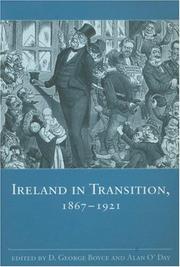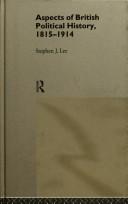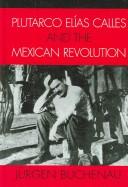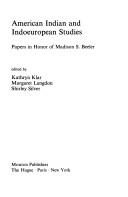| Listing 1 - 10 of 316 | << page >> |
Sort by
|

ISBN: 1134320019 0415332575 1283882833 1280031336 0203643577 9780203643570 0203401158 9780203401156 9786610031337 6610031339 0415332583 9781134320011 9781134319961 1134319967 9781134320004 1134320000 9780415332576 9780415332583 0415332583 9781283882835 9781280031335 Year: 2004 Publisher: London ; New York Routledge
Abstract | Keywords | Export | Availability | Bookmark
 Loading...
Loading...Choose an application
- Reference Manager
- EndNote
- RefWorks (Direct export to RefWorks)
This book explores the efforts made by British governments, Irish politicians, and Irish cultural organisations to master and shape Ireland in an age of increasingly rapid change, and explain the process and outcome of these endeavours.
Book
ISBN: 1776678893 9781776678891 Year: 2015 Publisher: Auckland The Floating Press
Abstract | Keywords | Export | Availability | Bookmark
 Loading...
Loading...Choose an application
- Reference Manager
- EndNote
- RefWorks (Direct export to RefWorks)
In the late 1800s, novelist and poet William Dean Howells began to write a series of short comic plays he called farces, often dealing with episodes drawn from day-to-day life. In The Register , zany heroines Henrietta Spaulding and Ethel Reed spruce up their newly rented apartment.
Book
ISBN: 1603449558 9781603449557 1299552943 9781299552944 9781603448161 1603448160 Year: 2013 Publisher: College Station
Abstract | Keywords | Export | Availability | Bookmark
 Loading...
Loading...Choose an application
- Reference Manager
- EndNote
- RefWorks (Direct export to RefWorks)
In 1910 insurgent leaders crushed the Porfirian dictatorship, but in the years that followed fought among themselves, until a nationalist consensus produced the 1917 Constitution. This in turn provided the basis for a reform agenda that transformed Mexico in the modern era. The civil war and the reforms that followed receive new and insightful attention in this book. These essays, the result of the 45th annual Walter Prescott Webb Memorial Lectures, presented by the University of Texas at Arlington in March 2010, commemorate the centennial of the outbreak of the revolution.
Nationalism --- Mexico --- History --- Revolution, 1910-1920.

ISBN: 0415090075 9781136801099 113680109X 9780203827406 0203827406 0415090067 9780415090063 9780415090070 1299287964 9781136801044 9781136801082 9781138126510 1136801081 Year: 1994 Publisher: London New York Routledge
Abstract | Keywords | Export | Availability | Bookmark
 Loading...
Loading...Choose an application
- Reference Manager
- EndNote
- RefWorks (Direct export to RefWorks)
Aspects of British History, 1815-1914 addresses the major issues of this much-studied period in a clear and digestible form.* Introduces a fresh feel to long-studied topics* Consolidates a grest deal of recent research* Carefully organised to reflect the way teachers tackle this course* Written by and experienced and renowned textbook author* Illustrated with helpful maps and photographs
Great Britain --- Politics and government --- 19th century --- 1901-1910 --- Great Britain - Politics and government - 1901-1910.
Book
ISBN: 1783717432 9781783717439 9781783717446 1783717440 074533637X 9780745336374 9780745336329 0745336329 9781783717453 Year: 2016 Publisher: London
Abstract | Keywords | Export | Availability | Bookmark
 Loading...
Loading...Choose an application
- Reference Manager
- EndNote
- RefWorks (Direct export to RefWorks)
Easter Rising (Ireland : 1916) --- 1910-1921 --- Ireland --- History
Book
ISBN: 0292771770 Year: 1961 Publisher: Austin, [Texas] : University of Texas Press,
Abstract | Keywords | Export | Availability | Bookmark
 Loading...
Loading...Choose an application
- Reference Manager
- EndNote
- RefWorks (Direct export to RefWorks)
Early in a sixteen-year sojourn in Mexico as an engineer for an American mining company, John W. F. Dulles became fascinated by the story of Mexico’s emergence as a modern nation, and was imbued with the urge to tell that story as it had not yet been told—by letting events speak for themselves, without any interpretations or appraisal. The resultant book offers an interesting paradox: it is “chronicle” in the medieval sense—a straightforward record of events in chronological order, recounted with no effort at evaluation or interpretation; yet in one aspect it is a highly personal narrative, since much of its significant new material came to Dulles as a result of personal interviews with principals of the Revolution. From them he obtained firsthand versions of events and other reminiscences, and he has distilled these accounts into a work of history characterized by thorough research and objective narration. These fascinating interviews were no more important, however, than were the author’s many hours of laborious search in libraries for accounts of the events from Carranza’s last year to Calles’ final retirement from the Mexican scene. The author read scores of impassioned versions of what transpired during these fateful years, accounts written from every point of view, virtually all of them unpublished in English and many of them documents which had never been published in any language. Combining this material with the personal reminiscences, Dulles has provided a narrative rich in its new detail, dispassionate in its presentation of facts, dramatic in its description of the clash of armies and the turbulence of rough-and-tumble politics, and absorbing in its panoramic view of a people’s struggle. In it come to life the colorful men of the Revolution —Obregón, De la Huerta, Carranza, Villa, Pani, Carillo Puerto, Morones, Calles, Portes Gil, Vasconcelos, Ortiz Rubio, Garrido Canabal, Rodríguez, Cárdenas. (Dulles’ narrative of their public actions is illumined occasionally by humorous anecdotes and by intimate glimpses.) From it emerges also, as the main character, Mexico herself, struggling for self-discipline, for economic stability, for justice among her citizens, for international recognition, for democracy. This account will be prized for its encyclopedic collection of facts and for its important clarification of many notable events, among them the assassination of Carranza, the De La Huerta revolt, the assassination of Obregón, the trial of Toral, the resignation of President Ortiz Rubio, and the break between Cárdenas and Calles. More than sixty photographs supplement the text.
Mexico - Politics and government - 1910-1946. --- Mexico --- Politics and government
Book
ISBN: 1283148374 9786613148377 9814299596 Year: 2011 Publisher: Singapore : World Scientific Publishing Company,
Abstract | Keywords | Export | Availability | Bookmark
 Loading...
Loading...Choose an application
- Reference Manager
- EndNote
- RefWorks (Direct export to RefWorks)
S. Chandrasekhar, popularly known as Chandra, was one of the foremost scientists of the 20th century. The year 2010 marks the birth centenary of Chandra. His unique style of research, inward bound, seeking a personal perspective to master a particular field, and then pass on to another was so unique that it will draw considerable interest and attention among scholars. As Chandra elucidates in the preface, the various installments describe in detail the evolution of my scientific work during the past forty years and records each investigation, describing the doubts and the successes, the trials

ISBN: 1461640954 9781461640950 1299926649 9781299926646 074253748X 9780742537484 0742537498 9780742537491 Year: 2007 Publisher: Lanham, Md. Rowman & Littlefield
Abstract | Keywords | Export | Availability | Bookmark
 Loading...
Loading...Choose an application
- Reference Manager
- EndNote
- RefWorks (Direct export to RefWorks)
The only substantive study of Plutarco Elías Calles and the Mexican Revolution, this book traces the remarkable life story of a complex and little-understood, yet key figure in Mexico's history. Jürgen Buchenau draws on a rich array of archival evidence from Mexico, the United States, and Europe to explore Calles's origins and political trajectory, ultimately leading to his reformist, yet authoritarian presidency from 1924 to 1928. After his term as president, Calles continued to exert broad influence as his country's foremost political figure; indeed, many of the institutions and laws forged

ISBN: 9783110808681 3110808684 902797876X 9789027978769 Year: 1980 Publisher: The Hague: Mouton,
Abstract | Keywords | Export | Availability | Bookmark
 Loading...
Loading...Choose an application
- Reference Manager
- EndNote
- RefWorks (Direct export to RefWorks)
No detailed description available for "American Indian and Indoeuropean Studies".
Indians of North America --- Indo-European languages. --- Languages. --- Beeler, Madison Scott, --- Languages --- Indo-European languages --- Beeler, Madison Scott, - 1910 --- -Indians of North America --- Beeler, Madison Scott, - 1910-
Book
ISBN: 9786612033599 128203359X 1780347367 0813546540 9780813546544 0813544440 0813544459 9780813544441 9780813544458 6612033592 9781780347363 Year: 2009 Publisher: New Brunswick, N.J. Rutgers University Press
Abstract | Keywords | Export | Availability | Bookmark
 Loading...
Loading...Choose an application
- Reference Manager
- EndNote
- RefWorks (Direct export to RefWorks)
It was during the teens that filmmaking truly came into its own. Notably, the migration of studios to the West Coast established a connection between moviemaking and the exoticism of Hollywood. The essays in American Cinema of the 1910's explore the rapid developments of the decade that began with D. W. Griffith's unrivaled one-reelers. By mid-decade, multi-reel feature films were profoundly reshaping the industry and deluxe theaters were built to attract the broadest possible audience. Stars like Mary Pickford, Charlie Chaplin, and Douglas Fairbanks became vitally important and companies began writing high-profile contracts to secure them. With the outbreak of World War I, the political, economic, and industrial groundwork was laid for American cinema's global dominance. By the end of the decade, filmmaking had become a true industry, complete with vertical integration, efficient specialization and standardization of practices, and self-regulatory agencies.
Motion pictures --- Plots, themes, etc. --- History. --- Film --- anno 1910-1919 --- United States --- United States of America
| Listing 1 - 10 of 316 | << page >> |
Sort by
|

 Search
Search Feedback
Feedback About UniCat
About UniCat  Help
Help News
News